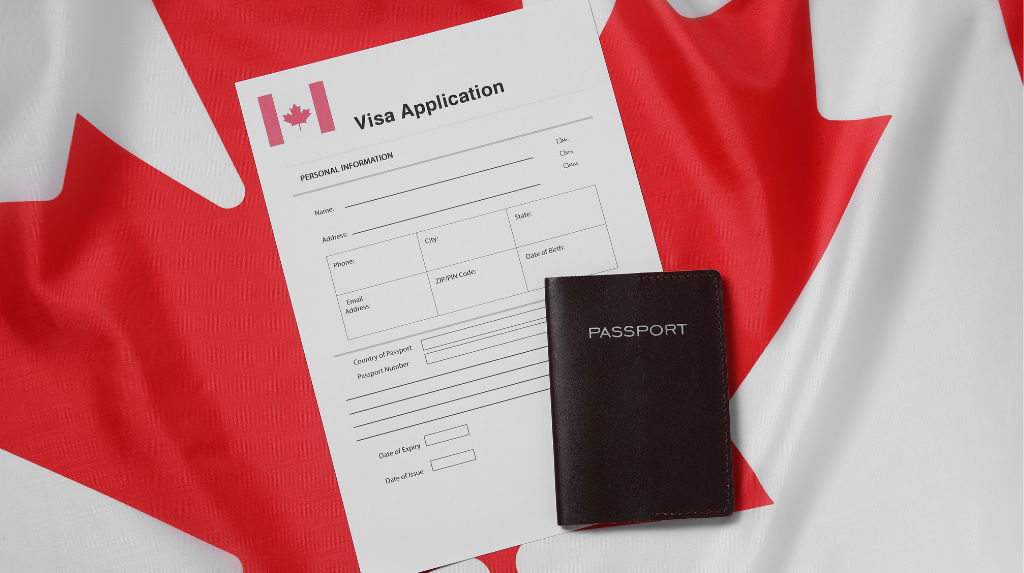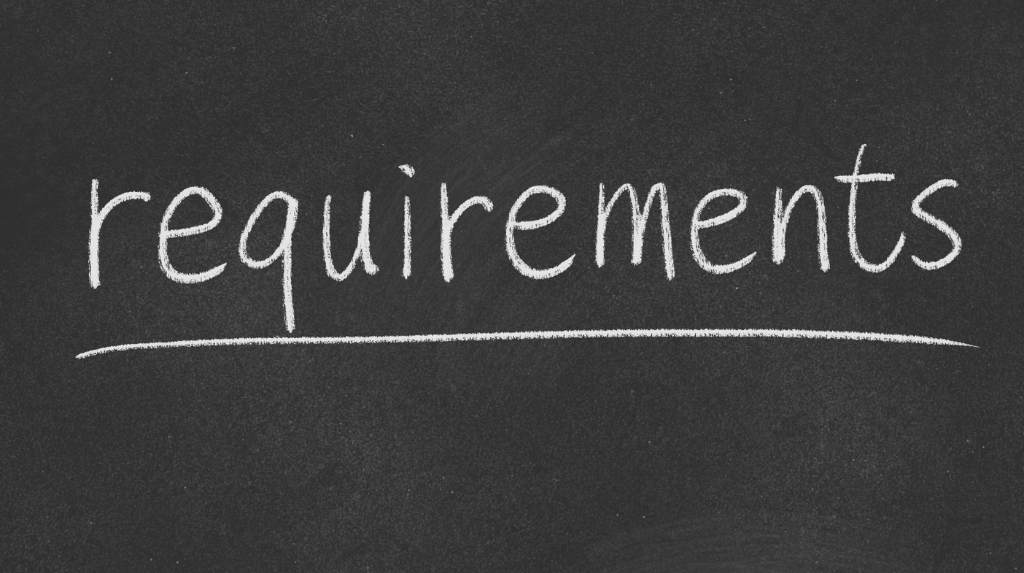For Nigerian citizens looking to experience the opportunities that Canada offers, whether it be for tourism, education, business, or to reunite with family, understanding the visa application process is crucial. This guide aims to provide an in-depth look into the various types of Canada visas available to Nigerian citizens, outlining the essential steps in the application process, required documentation, and key tips to enhance the chances of a successful application.
Canada Visa Types for Nigerian Citizens
Canada’s diverse range of visa categories caters to the different needs and travel purposes of Nigerian travellers. Understanding each type of visa is crucial for a successful application. Here’s an overview of the primary visa categories available to Nigerian citizens:
Visitor Visa (Temporary Resident Visa)
This visa category is ideal for Nigerian tourists, individuals visiting family or friends, or business professionals attending meetings or conferences in Canada. The Visitor Visa, also known as a Temporary Resident Visa (TRV), typically allows for a stay of up to six months in Canada. It is the most common visa for short-term visits and is perfect for those looking to experience Canada’s cultural diversity, natural beauty, and vibrant cities.
Study Permit
The Study Permit is issued to Nigerian students who have been accepted into Canadian educational institutions. This visa is crucial for those planning to pursue their education, whether it be for secondary schooling, college, university, or other educational programs in Canada. The validity of the Study Permit usually aligns with the duration of the study program, with an additional 90 days, allowing students time to prepare for their departure from Canada or to extend their stay.
Work Permit
Nigerian citizens who have secured a job offer in Canada can apply for a Work Permit. This permit is often employer-specific, meaning it is tied to a specific job and employer in Canada. It allows Nigerians to live and work in Canada for a set period and can be a pathway to gaining valuable international work experience and potentially qualifying for permanent residency in the future.
Permanent Resident Visa
Various immigration programs are available for Nigerian citizens who wish to become permanent residents of Canada. The Canadian immigration system includes the Express Entry system, which selects skilled workers based on a points-based system, Provincial Nominee Programs (PNPs) that allow provinces and territories to nominate individuals interested in settling in a specific province, and Family Sponsorship, where a Canadian citizen or permanent resident can sponsor a family member to live in Canada.
Transit Visa
The Transit Visa is required for Nigerian citizens who will be transiting through Canada for less than 48 hours on their way to another country. This visa is necessary for those who have a connecting flight in Canada and are not exempt from the transit visa requirements. It’s important for travellers to check whether they need a transit visa as part of their travel plans.
Visa Application Process
Determine the Right Visa Type
The first step in the visa application process is selecting the appropriate visa category. Canada offers various types of visas, such as visitor visas, study permits, work permits, and permanent residency visas. Each category has specific requirements and is meant for different purposes. Therefore, it’s crucial to choose the one that aligns with your reason for travelling to Canada.
Document Preparation
The next step involves gathering all the necessary documentation. This typically includes a valid Nigerian passport with an expiry date that extends beyond the intended stay in Canada. Applicants will also need to show proof of sufficient funds to cover their stay, a detailed travel itinerary, and in some cases, a letter of invitation from someone in Canada. Other required documents might include employment letters, proof of ties to Nigeria, and travel insurance.
Online Application Submission
Nigerians can complete and submit most Canadian visa applications online through the Immigration, Refugees, and Citizenship Canada (IRCC) website. The online system guides applicants through each step of the application process and lists the documents they need to upload.
Application Fee Payment
Applicants must pay a non-refundable visa application fee. The amount of the fee varies depending on the type of visa they apply for. They usually make the payment online during the application process.
Biometrics Submission
As part of the application, Nigerian applicants may need to provide biometrics, which include a photograph and fingerprints. This is typically done at a Visa Application Centre (VAC) in Nigeria. An appointment for biometrics submission is usually scheduled after the online application is submitted.
Interview and Additional Documents
In some cases, applicants might be asked to attend an interview at the Canadian Embassy or Consulate. Additionally, further documents may be requested to support the application. These could include additional proof of financial stability, employment status, or study plans in Canada.
Application Processing
The processing time for Canadian visas varies based on the visa type and individual circumstances. It can range from a few weeks to several months. It’s advisable to apply well in advance of your planned travel date to accommodate any potential delays in processing.
Visa Decision
Once the application has been processed, applicants will be informed of the decision. If the visa is approved, it will be affixed to the applicant’s passport. The visa will specify the duration of stay and any conditions attached to the visit
Tips for a Successful Visa Application
Applying for a visa to Canada, or any other country, can sometimes be a complex process. However, by following these essential tips, Nigerian applicants can increase their chances of a successful visa application:
Start Early
One of the most crucial tips for a successful visa application is to begin the process well in advance of your intended travel date. Visa processing times can vary, and there may be unexpected delays. Starting early ensures you have ample time to gather all necessary documents, complete the application accurately, and address any issues that may arise during the process.
Complete and Accurate Applications
Accuracy and completeness are key when filling out your visa application. Make sure all the information you provide is correct and up-to-date. Any discrepancies or missing information can lead to delays or even the rejection of your application. Double-check all entries and ensure that your application aligns with the documents you are submitting.
Financial Proof
Demonstrating that you have sufficient funds to cover your stay in Canada is a critical aspect of the visa application process. You may need to provide bank statements or other financial documents to prove you can support yourself during your visit. This reassures the visa officers that you are not likely to seek unauthorized work or become a financial burden to the country.
Follow Instructions
Each visa category has specific instructions and requirements. It is imperative to read and understand these instructions carefully. Whether it’s a visitor visa, study permit, or work permit, ensure that you follow the specific guidelines for the visa category you are applying for. This includes submitting the correct forms, providing the required documentation, and following the designated application process, whether it’s online or through a paper application.
Common Reasons for Visa Denial
- Incomplete application or missing documents.
- Insufficient financial means.
- Doubts about the applicant’s intention to return to Nigeria.
- Inadequate travel insurance.
Post-Arrival in Canada
For Nigerian citizens who have successfully obtained a Canadian visa and have arrived in Canada, it’s essential to understand and respect the conditions of their visa. Compliance with these conditions is crucial not only for the duration of the stay but also for maintaining a good immigration record for future travels.
Understanding Visa Conditions
Upon entry into Canada, it’s important to be fully aware of what your visa permits and what it restricts. This includes the length of your stay, the purpose of your visit and any other conditions outlined in your visa. For instance, if you have a visitor visa, you are not permitted to take up employment in Canada. Similarly, a work permit holder should work only for the employer and in the job specified in their permit.
Duration of Stay
Your visa will state the duration of your stay in Canada. It’s vital to adhere to this timeline. Overstaying can lead to being classified as an illegal immigrant, which can have serious consequences, including deportation and being barred from entering Canada in the future. If you need to extend your stay, you should apply for an extension well before your current visa expires and ensure you have valid reasons for the extension.
Reporting Changes
You must report significant changes to your situation, such as changes in employment for work permit holders, changes in educational institutions for study permit holders, or changes in personal circumstances for visitor visa holders, as required by Canadian immigration laws.
Compliance with Canadian Laws
While in Canada, it’s crucial to comply with all Canadian laws. Any legal infractions can affect your immigration status and lead to penalties, including the possibility of deportation.
Preparing for Departure
As your departure date approaches, make arrangements to leave Canada unless you have successfully applied for an extension or change in your immigration status. Overstaying your visa can impact your ability to return to Canada in the future.
Seeking Legal Advice if Needed
If you encounter any issues regarding your immigration status or have questions about your visa conditions, it’s advisable to seek guidance from immigration consultants or legal advisors who are knowledgeable in Canadian immigration laws.
In conclusion, obtaining a Canada visa for Nigerian citizens involves understanding the various visa types, preparing the necessary documentation, and following the application process diligently. With proper planning and adherence to the guidelines, Nigerians can look forward to a successful visit to Canada.
Note: Always check the latest information from the Canadian Embassy or the IRCC website, as visa policies and requirements can change.
Do you need assistance with your Canadian visa application?
Contact our team of skilled immigration lawyers to discuss your visa and immigration needs.
Call us on +234 812 5505 986 or WhatsApp us at +234 818 1547 085 for immediate assistance with your situation. We are available to assist you in person, over the phone, or online.





